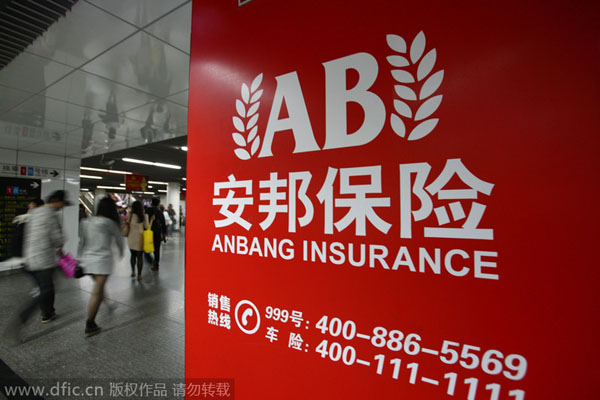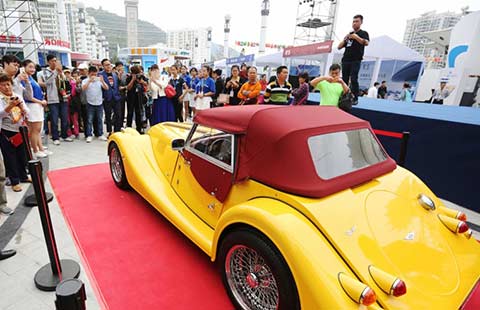Anbang Insurance pulls out of Starwood hotel bidding
By Cai Xiao (China Daily) Updated: 2016-04-02 02:51
 |
|
Passengers walk past an advertisement for Anbang Insurance Group at a subway station in Shanghai, Oct 18, 2012. [Photo/IC] |
Starwood said on Monday that Anbang had raised its offer to almost $14 billion. In the latest offer, Anbang's consortium had offered $82.75 per share in cash. Marriott's latest cash-and-stock offer, which was announced on March 21, is worth around $75 per share.
Huang, the lawyer, said the attitude of domestic regulators may have been another factor influencing the deal.
"China's insurance regulator may have concerns that insurance funds designed for short periods would be used for buying long-term assets," Huang said, adding that Anbang has products including universal insurance and participating insurance for short periods, and the regulator may have been scrutinizing the safety of funding a major commercial acquisition through such products.
The Chinese financial magazine Caixin had reported that the China Insurance Regulatory Commission, the industry watchdog, may not approve two Anbang deals, Starwood and Strategic Hotels & Resorts.
Alan Wang said Chinese enterprises are increasingly going abroad to seek mergers and acquisitions based on good brands, technology and steady asset value. He said Chinese enterprises should evaluate assets in advance carefully, especially those in sensitive sectors that may not be approved in those countries.
Chinese companies have ample funds and a huge market, which can work to their advantage in outbound deals, Huang said. "However, Chinese companies are still young in M&As and have a lot of things to learn."
- Ministry says credit downgrade off target
- Huawei 2015 profits up 33 percent
- China's manufacturing activity rebounds to nine-month high
- No kidding, Baidu launches project to bring sci-fi into reality
- Improving demand, stabilized market sentiment help push up China's PMI: bank report
- iPhone SE unboxing and media digest
- China to levy anti-dumping duties on imports of acrylic fibers, steel
- Property policy makes a comeback after 7 yrs of suspension

















